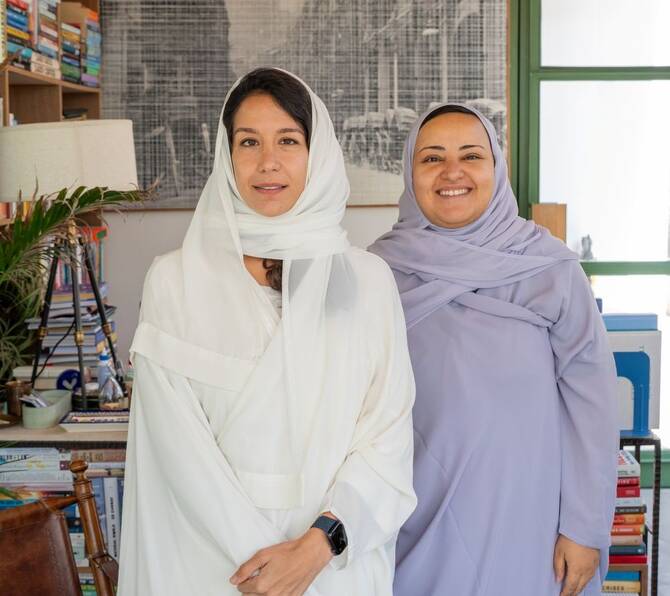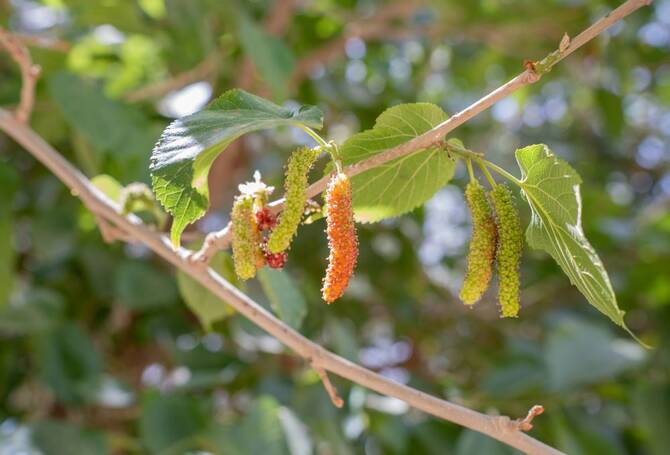RIYADH: A Saudi nonprofit organization has created a “tree library” in Riyadh, which aims to educate the public while providing a community space for environmental discussions.
AEON Collective’s initiative is raising awareness of environmental topics through organized discussions and offering opportunities for knowledge exchange.
Princess Mashael Al-Shalan, co-founder of AEON Collective, told Arab News: “We have a firm belief that if we are trying to tackle a lot of these issues we’re talking about in our day-to-day operations — climate change, energy security, biodiversity loss, land degradation — as we heard in Saudi last year, you need to have a way of talking truly about the complexity of these issues.”
The tree library was developed during the COVID-19 lockdowns, when in-person meetings were restricted.
Princess Al-Shalan added: “We needed to find some way to make it a bit safer for people to congregate again in person, to have some of these difficult conversations and do them in a way that was consistent, of delivering on actionable dialogs, not necessarily just conversation for its (own) sake.”
The tree library is not only an area for dialogue, but also a garden where people can enjoy conversation while surrounded by nature.
Co-founder Princess Noura bint Turki compared it to a majlis, or traditional gathering.
She added: “They’re just respectful interactions and exchanges of ideas which then, even if you have a problem, you end up solving this problem or finding solutions. That is a win-win for everyone.”
The tree library is now growing and has become a haven for all types of environmental health and well-being activities.
Princess Noura explained that health and wellness were essential to creating a healthy community.
She said: “We provide them with the space, they have these conversations together, they work out or they do some healing practices and exercises, but at the same time they reflect on the space where they feel connected to nature and they start thinking about sustainability issues.
“They can have conversations around sustainability, around challenges that we’re facing, and come up with solutions. That way you get people from various backgrounds, various interests, to talk about subjects, to speak to them at the individual level. That’s how you create a community.”
AEON Collective has created a number of tree libraries around the world, including in Italy, Kuwait, Jamaica, Liberia, and the US.
Princess Al-Shalan described how these interconnected libraries were a representation of the underground mycelium networks that trees use to communicate.
She said: “(This) romantic paradigm is something that we’re trying to replicate in the physical and digital realm with these locations of the tree library, so that the notion of a system coming to the aid of its weakest constituents in a specific way is how we’re trying to address it.”
Although interconnected, each tree library is designed to serve its own local community.
Princess Al-Shalan said: “The priorities of each of those different jurisdictions are most definitely different from those in Riyadh.
“So while, for example, Failaka Island used to be the food basket of Kuwait prior to the First Gulf War, after it a lot of the land there was no longer productive.
“The return of those lands to something that’s a bit more productive as a vehicle for food security for Kuwait is immensely important.”
The co-founders of AEON Collective speak of how collaborative discussions often lead to stronger advocacy efforts and policy changes, with open communication empowering people to take action and promote a sustainable future for the planet.
Princess Noura said: “The whole idea is you want to inspire a new generation of support, and the way you inspire a new generation is by showing them through action.
“If we can work with people from our generation or our younger generation to showcase the positive impacts that can happen through an individual and at a community level, when it comes to environmental conservation, human well-being, then you are charting a way for the new generations and the upcoming generations to really have urgency moving forward.
“We hope that everyone feels that this is a space for them, where they can come and learn and contribute and also educate others, because that’s how we learn from each other and create stronger communities.”


































